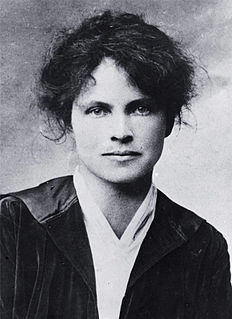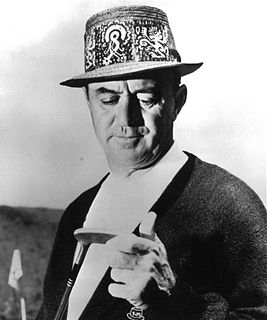A Quote by Douglas Adams
The teacher usually learns more than the pupils. Isn't that true? "It would be hard to learn much less than my pupils," came a low growl from somewhere on the table, "without undergoing a pre-frontal lobotomy."
Related Quotes
What I mean is that if you really want to understand something, the best way is to try and explain it to someone else. That forces you to sort it out in your mind. And the more slow and dim-witted your pupil, the more you have to break things down into more and more simple ideas. And that's really the essence of programming. By the time you've sorted out a complicated idea into little steps that even a stupid machine can deal with, you've learned something about it yourself... The teacher usually learns more than the pupils. Isn't that true?
A game master or teacher who was primarily concerned with being close enough to the "innermost meaning" would be a very bad teacher. To be candid, I myself, for example, have never in my life said a word to my pupils about the "meaning" of music; if there is one it does not need my explanations. On the other hand I have always made a great point of having my pupils count their eighths and sixteenths nicely. Whatever you become, teacher, scholar, or musician, have respect for the "meaning" but do not imagine that it can be taught.
The teachers of small children are paid more than they were, but still far less than the importance of their work deserves, and they are still regarded by the unenlightened majority as insignificant compared to those who impart information to older children and adolescents, a class of pupils which, in the nature of things, is vastly more able to protect its own individuality from the character of the teacher.
Progress is slow partly from mere intellectual inertia. In a subject where there is no agreed procedure for knocking out errors, doctrines have a long life. A professor teaches what he was taught, and his pupils, with a proper respect and reverence for teachers, set up a resistance against his critics for no other reason than that it was he whose pupils they were.
Passive acceptance of the teacher's wisdom is easy to most boys and girls. It involves no effort of independent thought, and seems rational because the teacher knows more than his pupils; it is moreover the way to win the favour of the teacher unless he is a very exceptional man. Yet the habit of passive acceptance is a disastrous one in later life. It causes man to seek and to accept a leader, and to accept as a leader whoever is established in that position.
Liebig was not a teacher in the ordinary sense of the word. Scientifically productive himself in an unusual degree, and rich in chemical ideas, he imparted the latter to his advanced pupils, to be put by them to experimental proof; he thus brought his pupils gradually to think for themselves, besides showing and explaining to them the methods by which chemical problems might be solved experimentally.





































